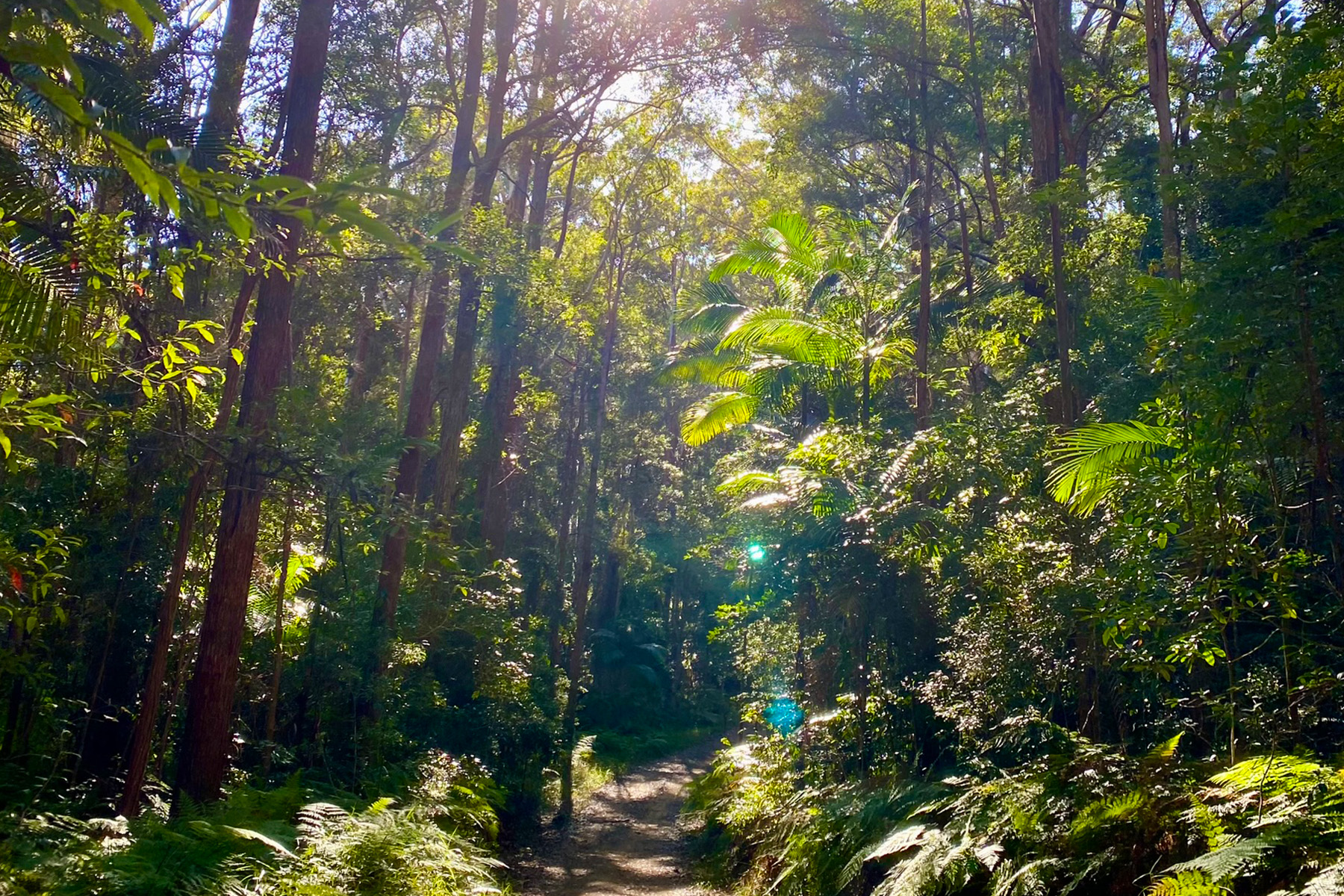
Mark Squires
5 Ways to Wellbeing in Nature
As life becomes busier, we’re realising how important it is to protect our mental health and wellbeing.
The Five Ways to Wellbeing are an easy way to improve mental wellbeing no matter where you are or what time it is and in a way that suits you. Nature is the ideal place to practice the Five Ways to Wellbeing. Evidence from across the world is showing that spending time in nature makes us feel healthier, happier and more optimistic.
Make time for people and enjoy the world around you.
Connecting with family, friends, or people in your community, will give you a sense of belonging. Why not spend time with them in nature? Meet new people at a community event or spend time in the backyard with your family. Other ways that you can connect with people include:
- Go for a walk with a friend and greet the people you walk past.
- Organise a family picnic in a local park.
- Join a nature based walking group to meet new people and discover new parks.
- Join a community garden and meet new people from all walks of life. Connect by sharing seeds, plants and tips for growing
- Why not do a lockout? Lock yourself out of the house or office for one hour to connect with others and nature! Go for a walk with a friend, share a picnic in your local park, meet new people at a community event or spend time in the backyard with your family.
Move your body and breathe in the fresh air.
Being active and moving your body helps you stay fit and healthy, both mentally and physically. There are so many ways that you can be active in nature, it’s as easy as a walk in the park:
- Go outside and walk, run, swim or ride.
- Take your dog for a walk on the beach.
- Practice some yoga or tai chi in a park or at the beach.
- Sweep up some leaves and do some gardening.
- Join a local sports club to be active and meet people at the same time.
- Take a quick walk after dinner or a longer walk on the weekend.
- Join a walking group.
Find a moment to take in the beauty of nature.
Lynette, a Kaurna Country Elder, always takes time to meditate and take notice of what is around her. Taking notice and slowing down helps you to feel calm and relaxed. Learn to enjoy each moment. Take in the beauty of the natural world around you. Look out for the colours of the trees changing with the seasons, or listen for birds singing early in the morning. Maybe try a few of these suggestions:
- Take notice of the night sky.
- Listen to the morning birdsong.
- Explore your garden(opens in a new window) or a park and notice the different plants and insects.
- Take a camera on a bush walk and photograph the natural environment; take the time to really notice the colours and textures of what you are photographing.
- Look out for nature in unexpected places.
- Practice being mindful(opens in a new window) in nature – breathe in slowly, feel the breeze, take in the sounds, open your eyes slowly and enjoy the view.
- Take a photo of the nature you notice and hashtag #noticenature #naturehunt! Take the challenge and tag a friend to do the same.
Be curious about nature and discover something new.
PHD student, Georgia, says nature helps her to concentrate and provides many opportunities to keep learning. Learning new things and challenging your mind will give you a sense of achievement. Learn something new regularly. Discover new things in nature, or in your own backyard. Why not learn how to grow your own food? Or give some of these a try:
- Learn how to cook something different with ingredients you’ve learned to grown.
- Take a trip to a wildlife park(opens in a new window) and learn about the animals.
- Build a worm farm or compost system in your backyard.
- Visit the observatory and learn about the constellations.
- Consider volunteering for an organisation(opens in a new window) or cause where you can learn new skills and immerse yourself in nature.
- Become a citizen scientist(opens in a new window) and help local conservation and recovery efforts.
- Get in touch with your local Natural Resources Management Board(opens in a new window) and see what you can learn and experience in your local area.
Do something nice for someone. Do something nice for the environment.
Erik volunteers his time to give back to the environment and protect the bush. Give what you can. It can be a simple as your time, your expertise or something from your garden. You can also give on a bigger scale by caring for the environment. A few ways you can give to others and the environment are to:
- Help a neighbour with some jobs in their garden or yard.
- Volunteer at an organised beach clean-up(opens in a new window) or arrange your own.
- Join a tree planting day or give your time to caring(opens in a new window) for the environment.
- Challenge yourself to produce less waste(opens in a new window).
- Give some produce from your garden to family, co-workers, friends or neighbours.
Source: This campaign is an initiative of Healthy Parks Healthy People SA and is an adaption of the Five Ways to Wellbeing, developed in the UK by the New Economics Foundation.







